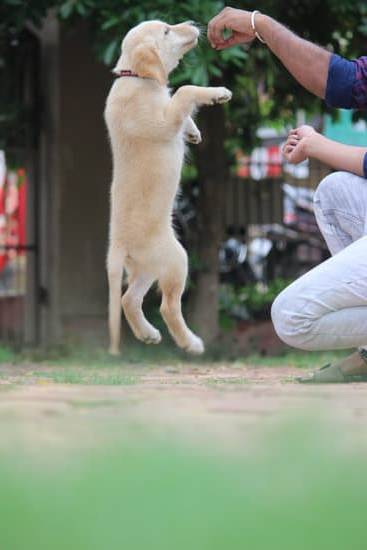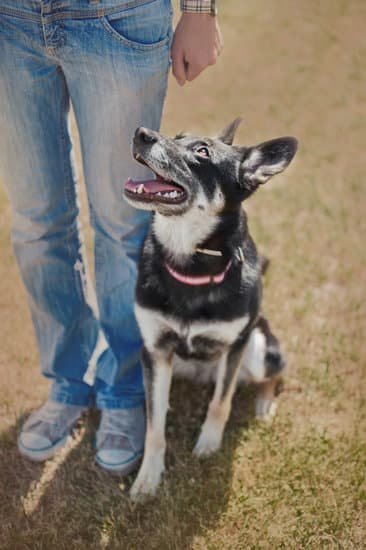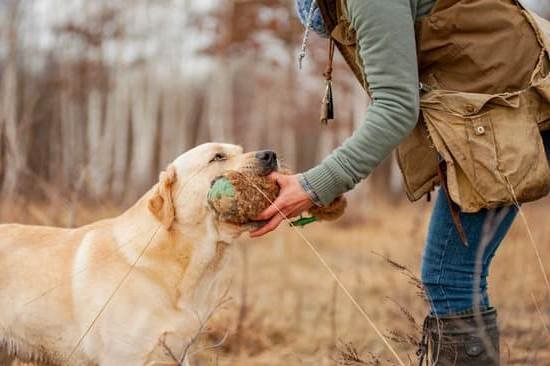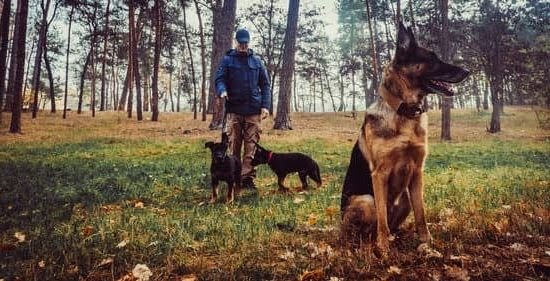Training a bird dog is no easy task, as it involves harnessing their natural instincts and transforming them into skilled hunting companions. However, many potential dog owners wonder if it’s ever too late to train a bird dog. In this article, we will delve into this common question and separate fact from fiction.
Bird dogs have innate instincts that make them excellent hunters, such as pointing and retrieving game. These instincts are ingrained in their DNA, but it doesn’t mean they can’t be trained or refined at any age. The key lies in understanding the nature of bird dogs and their trainability.
While early training is often recommended for better results, adult dogs can also be trained successfully. The optimal training period for bird dogs may vary depending on factors such as breed, energy level, and individual temperament. In this article, we will explore the differences between early training and adult training to help you make an informed decision when it comes to training your bird dog.
Join us as we address the challenges that come with training an older bird dog. Common concerns and limitations will be discussed in order to better understand what hurdles may need to be overcome during the training process. Additionally, we will provide effective techniques and tips specifically designed for adult bird dogs in order to give you the tools needed for success.
So, if you’re wondering whether it’s possible to train a bird dog at any age, stay tuned. We’ve got expert insights from professional trainers who will share their views on the matter. Through inspiring case studies of successfully training older bird dogs, along with realistic goal-setting and advice on consistency and patience, you’ll gain valuable knowledge about how best to approach this endeavor.
Understanding the Nature of Bird Dogs
When it comes to training bird dogs, understanding their nature, instincts, and trainability is crucial for success. Bird dogs are bred for specific purposes, such as hunting and retrieving game birds. In order to effectively train them, it is important to recognize their natural instincts and work with them rather than against them.
Instincts of Bird Dogs
Bird dogs have instincts that are deeply ingrained in their DNA. These instincts include pointing or flushing out birds, tracking scents, retrieving downed birds, and responding to commands from their handler. It is important to note that these instincts can vary depending on the breed of the bird dog.
For example, Pointers are known for their instinctive pointing behavior, while Labrador Retrievers are renowned for their excellent tracking and retrieving skills. Recognizing these instincts and utilizing them in training can help maximize a bird dog’s potential.
Trainability of Bird Dogs
While bird dogs have strong instincts, they also possess a high level of trainability. This means that they have the ability to learn new skills and behaviors through consistent training methods. However, it is essential to understand that trainability can vary among individual dogs.
Factors such as genetics, previous experiences, temperament, and the training techniques used can all influence a bird dog’s trainability. Some dogs may be more responsive to training and eager to please their handlers, while others may require more patience and consistency.
The Optimal Training Period for Bird Dogs
When it comes to training a bird dog, one of the common debates is whether it is better to start training them at an early age or if it is possible to train them as adults. Understanding the optimal training period for bird dogs can help owners make informed decisions and set realistic expectations when it comes to their training journey.
Early Training:
Bird dogs are known for their innate instincts and natural abilities to hunt and retrieve game birds. Therefore, many trainers believe that starting their training at a young age can be highly beneficial.
Puppies have a greater capacity for learning and flexibility, making it easier for them to develop basic skills and behaviors necessary for hunting. Early exposure to different environments, scent games, socialization with other dogs, and basic obedience commands can lay a solid foundation for their future training as adult bird dogs.
Adult Training:
Training an adult bird dog may present some challenges compared to starting at a younger age, but it is certainly not impossible. Adult bird dogs may already have developed certain habits or behaviors that need retraining or modification. However, adult dogs are generally more calm and focused than puppies, which can make specific training tasks easier. The key here is to approach training with patience, consistency, and understanding of the dog’s previous experiences and history.
| Early Training | Adult Training |
|---|---|
| Greater capacity for learning | More calm and focused |
| Lays solid foundation | Possible need for retraining |
| Easier development of basic skills | Modified or challenging behaviors to address |
Addressing the Challenges of Training an Older Bird Dog
As with any training process, there are unique challenges and limitations that come with training an older bird dog. However, with the right approach and understanding, these challenges can be addressed effectively. In this section, we will explore some common concerns and limitations when training adult bird dogs and discuss strategies to overcome them.
Physical Limitations
One of the main concerns when training an older bird dog is their physical limitations. Dogs, just like humans, may experience age-related issues such as arthritis or joint stiffness that could hinder their ability to perform certain tasks or exercises. It’s crucial for trainers to be mindful of these limitations and adjust their training programs accordingly.
Incorporating low-impact exercises or providing ample rest periods during training sessions can help prevent unnecessary strain on the dog’s body. Additionally, seeking guidance from a veterinarian can offer valuable insights on the specific needs and limitations of the individual bird dog.
Prior Conditioning
Another challenge often encountered when training adult bird dogs is addressing any previous conditioning they may have received throughout their lives. Bird dogs may have developed habits that contradict desired behaviors or have learned incorrect commands from previous owners or experiences.
It is important for trainers to identify these pre-existing conditioning factors and work patiently to address and correct them. This process may take some time as the dog adapts to new commands or behaviors, but with consistency and positive reinforcement techniques, it is possible to reshape their responses effectively.
Limited Training Window
Unlike puppies who have a longer window for early socialization and basic obedience training, older bird dogs might have a more limited period for learning new skills. This can make it challenging to cover all essential aspects of training within a shorter timeframe.
To overcome this limitation, it is crucial for trainers to prioritize specific skills or areas of focus that are most important for the individual dog’s needs. Breaking down training into smaller, manageable tasks and gradually building upon them can help ensure effective learning and progress.
By addressing these common concerns and limitations, trainers can create a tailored training program that suits the specific needs of older bird dogs. Understanding their physical limitations, working on correcting prior conditioning, and prioritizing essential skills will contribute to a successful training process. In the next section, we will discuss effective training techniques and tips specifically designed for adult bird dogs to further aid in their training journey.
Overcoming Obstacles
Training an adult bird dog can come with its own set of challenges, but with the right techniques and tips, these obstacles can be overcome. Here are some effective training techniques and tips specifically tailored for adult bird dogs:
- Establish a bond: Building a strong bond with your adult bird dog is crucial for successful training. Spend quality time together to develop trust and establish a solid foundation for your training sessions. Engage in activities such as playtime, walks, or simply relaxing together to build a positive relationship.
- Start with basic obedience commands: Regardless of their age, every bird dog should have a solid foundation in basic obedience commands such as sit, stay, come, and heel. Begin the training process by reinforcing these commands to ensure your adult bird dog understands and responds appropriately.
- Patience and consistency: Patience and consistency are key when it comes to training adult bird dogs. Understand that they may require more time to learn new behaviors compared to younger dogs. Stay consistent in your expectations and training methods to prevent confusion and keep the learning process clear for your bird dog.
- Positive reinforcement: Reward-based training methods work well for adult bird dogs. Use treats, praise, or play as rewards when your dog exhibits desired behaviors during training sessions. Positive reinforcement not only motivates them but also enhances the bond between you and your bird dog.
- Gradual exposure: If you are introducing new environments or situations to an adult bird dog during training, it’s important to do so gradually. Overwhelming them with too much stimuli at once may cause anxiety or fear responses. Slowly expose them to new experiences while providing calm reassurance.
Remember that each adult bird dog is unique, so adjust your training techniques based on their individual needs and abilities. With patience, consistency, and the use of positive reinforcement, you can effectively train an adult bird dog regardless of their follow noopener”>previous experiences or lack thereof.
Case Studies of Successfully Training Older Bird Dogs
One of the most inspiring aspects of training older bird dogs is the success stories and testimonials from dog owners who have accomplished this feat. These stories not only provide encouragement to those considering training an adult bird dog but also offer insights into effective training techniques and strategies.
In many instances, owners have reported remarkable transformations in their older bird dogs through patient and consistent training methods. One such case involved a 6-year-old Labrador retriever named Max. Max’s owner, Mark, had initially assumed it was too late to train him for bird hunting.
However, with the help of a professional trainer, they embarked on a dedicated training program. By utilizing positive reinforcement and regular exercise, Max gradually developed into a skilled bird dog. Mark shared his testimonials online, emphasizing the importance of persistence and adapting training methods to suit an older dog’s needs.
Another example is Molly, a 7-year-old English setter owned by Sarah. Sarah had rescued Molly from a shelter but was uncertain if Molly could be trained as a bird dog at her age. With guidance from an experienced trainer, they focused on building trust and establishing a strong foundation using reward-based techniques.
After several months of consistent training sessions, Molly surprised everyone with her natural hunting instincts and ability to follow commands in the field. Sarah’s testimonial highlighted how rewarding the experience was for both her and Molly and encouraged others not to underestimate an older dog’s potential for learning.
These case studies demonstrate that while training adult bird dogs may present some challenges, it is certainly possible to achieve successful outcomes with patience, dedication, and proper guidance from professional trainers. The key lies in understanding each individual dog’s unique background and adjusting training methods accordingly. With the right approach, even older bird dogs can develop new skills and become valuable hunting partners.
- Max – A 6-year-old Labrador retriever trained for bird hunting
- Molly – A 7-year-old English setter rescued from a shelter
Adjusting Expectations
When it comes to training an adult bird dog, it is important to adjust our expectations and set realistic goals. Unlike puppies that can be molded and shaped from a young age, adult dogs may already have established behaviors and habits that are more challenging to modify. However, with the right approach and techniques, it is certainly possible to train an adult bird dog and achieve desirable results.
One of the first steps in setting realistic goals for training an adult bird dog is understanding that they may not reach the same level of proficiency as a well-trained puppy. The old saying “you can’t teach an old dog new tricks” does not necessarily hold true when it comes to bird dogs, but we must acknowledge their limitations. It may take more time and effort to modify behaviors or teach new commands compared to a younger dog.
It is also important to remember that each individual dog is unique, with their own strengths and challenges. Some adult dogs may have had previous training or experience in the field, while others may have little to no formal training at all. Adjusting expectations based on the specific circumstances of each dog will help set realistic goals and ensure success in their training journey.
| Challenges | Solutions |
|---|---|
| Established behaviors and habits | Consistency in training methods, patience, positive reinforcement |
| Limited time for socialization | Gradual exposure to new situations, positive reinforcement during social interactions |
| Potential health issues or physical limitations | Adaptation of training exercises to accommodate physical abilities, consulting veterinarians for guidance |
In order to set realistic goals for training an adult bird dog, it is necessary to evaluate their current skills and behaviors. This evaluation will help determine the specific areas of focus and identify any challenges that may arise during the training process. By understanding these challenges, we can develop appropriate solutions and training techniques tailored to the individual needs of each dog.
Adjusting expectations when training an adult bird dog also means recognizing that progress may be slower compared to training a puppy. It is crucial to be patient and consistent in our training methods, while also celebrating even small achievements along the way. With time, effort, and the right mindset, it is possible to train an adult bird dog and enjoy a rewarding partnership with our loyal companions in the field.
The Importance of Consistency and Patience
Training a bird dog, whether it is a puppy or an adult, requires consistency and patience. The importance of these qualities cannot be overstated when it comes to achieving training success with an older bird dog. It is crucial for owners to understand that training an adult bird dog may take more time and effort compared to training a young pup.
Consistency is key when it comes to training any dog, but especially so when working with an older bird dog. These dogs are already set in their ways and may have developed bad habits over the years. In order to break these habits and establish new behaviors, owners must be consistent in their approach to training. This means setting clear expectations, using positive reinforcement, and repeating commands consistently until they become second nature to the dog.
Patience is another essential quality when training an adult bird dog. It can be frustrating at times when progress seems slow or non-existent. However, it is important for owners to remember that older dogs may require more time to learn new skills and behaviors compared to younger dogs. Patience allows for the necessary repetition and reinforcement that is needed for the training process.
It is also important for owners to acknowledge that every dog learns at their own pace. While some adult bird dogs may pick up on new commands quickly, others may require more time and repetition before they fully grasp what is being asked of them. This is why it is crucial not only to be consistent in training but also patient with the individual learning speed of each dog.
By emphasizing consistency and patience throughout the training process, owners increase their chances of achieving success in training an older bird dog. While it may take more time and effort compared to training a younger pup, the bond formed between an owner and their newly trained adult bird dog can be incredibly rewarding.
Expert Insights
When it comes to training adult bird dogs, professional trainers offer valuable insights and expertise. These experienced individuals have spent years working with a variety of dogs, including those that were trained at different stages of their lives. Their knowledge can help shed light on the training process for older bird dogs and provide guidance for those looking to train their own four-legged companion.
According to many professional trainers, while it may be more challenging to train an adult bird dog compared to a puppy, it is certainly not impossible. Dogs are capable of learning new skills and behaviors at any age, although it may take longer for an adult dog to grasp certain concepts compared to a younger one.
It is important to note that the success of training an older bird dog largely depends on the individual dog’s temperament, past experiences, and overall health.
One common piece of advice from professional trainers is to approach training an adult bird dog with patience and understanding. Unlike puppies who are more impressionable and easier to mold, adult dogs may have well-established habits or learned behaviors that require more time and effort to modify or replace.
Trainers emphasize the importance of using positive reinforcement techniques such as rewards and praise when working with older dogs, as this helps motivate them and reinforces desired behaviors. Moreover, consistency in training sessions is crucial in order for the adult bird dog to develop new skills and maintain progress over time.
Final Thoughts
In conclusion, while there may be challenges and limitations when training an older bird dog, it is never too late to start training them. Understanding the nature of bird dogs and their instincts can help guide the training process. The optimal training period for bird dogs is typically during their early stages of life, but with the right techniques and tips, adult bird dogs can still be effectively trained.
Addressing the challenges of training an older bird dog is crucial in setting realistic goals. Common concerns such as ingrained habits, physical limitations, and lack of previous training need to be taken into consideration. However, with patience, consistency, and proper techniques, these obstacles can be overcome.
Case studies of successfully training older bird dogs provide inspiration and encouragement for those considering training their adult companions. These stories demonstrate that with time and effort invested in training, even mature dogs can learn new skills and behaviors.
When it comes to training a bird dog at any age, personal decision-making plays a significant role. Factors such as the individual dog’s temperament, history, and specific needs should be considered. Professional trainers can offer valuable insights on effective strategies for adult bird dog training.
Frequently Asked Questions
Can you train an older dog to be a bird dog?
Yes, it is possible to train an older dog to be a bird dog, although it might require more patience and consistent training compared to starting with a younger dog. While training a puppy is often easier due to their ability to learn new behaviors quickly, older dogs can still learn and adapt.
It is important to approach the training process with understanding and flexibility as older dogs may have pre-existing behaviors or habits that need to be addressed. Consistency, positive reinforcement, and appropriate training techniques are key when working with an older dog, allowing them to develop the necessary skills and instincts to become a proficient bird dog.
Can you train a 2 year old dog to bird hunt?
Yes, it is possible to train a 2-year-old dog for bird hunting purposes. At this age, many dogs still possess a good amount of energy and curiosity which can be channeled towards training. However, it’s important to evaluate the individual characteristics of the dog in question before beginning the training process.
Some dogs may require remedial training or additional attention if they haven’t been exposed to hunting-related activities previously. A solid foundation in basic obedience commands like sit, stay, and recall is essential before transitioning into specific bird-hunting skills such as scenting game or retrieving downed birds. With consistent training and continued reinforcement, a 2-year-old dog can definitely learn the necessary skills for successful bird hunting.
Is it ever too late to retrain a dog?
It is never truly too late to retrain a dog; however, certain factors should be considered when deciding whether it’s worth pursuing retraining efforts for an adult canine companion. Dogs are capable of learning throughout their lives and can even change problematic behaviors through proper guidance and consistent training methods. While some issues may arise with age-related factors such as physical limitations or deeply ingrained habits developed over time, these challenges can often be overcome through patience and professional guidance.
It’s important for owners wishing to retrain their adult dogs to establish realistic expectations depending on their pet’s unique circumstances. Working with a qualified dog trainer or behaviorist can be beneficial in designing an appropriate retraining plan tailored to the individual dog’s needs.

Welcome to the blog! I am a professional dog trainer and have been working with dogs for many years. In this blog, I will be discussing various topics related to dog training, including tips, tricks, and advice. I hope you find this information helpful and informative. Thanks for reading!





